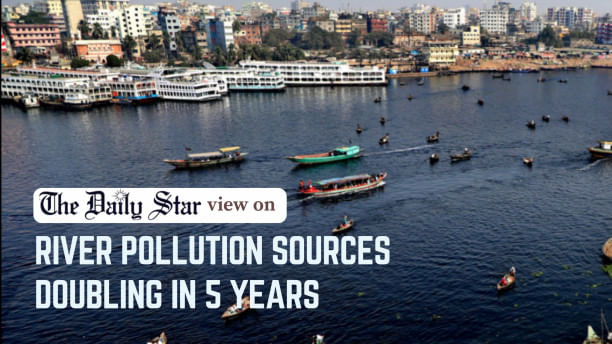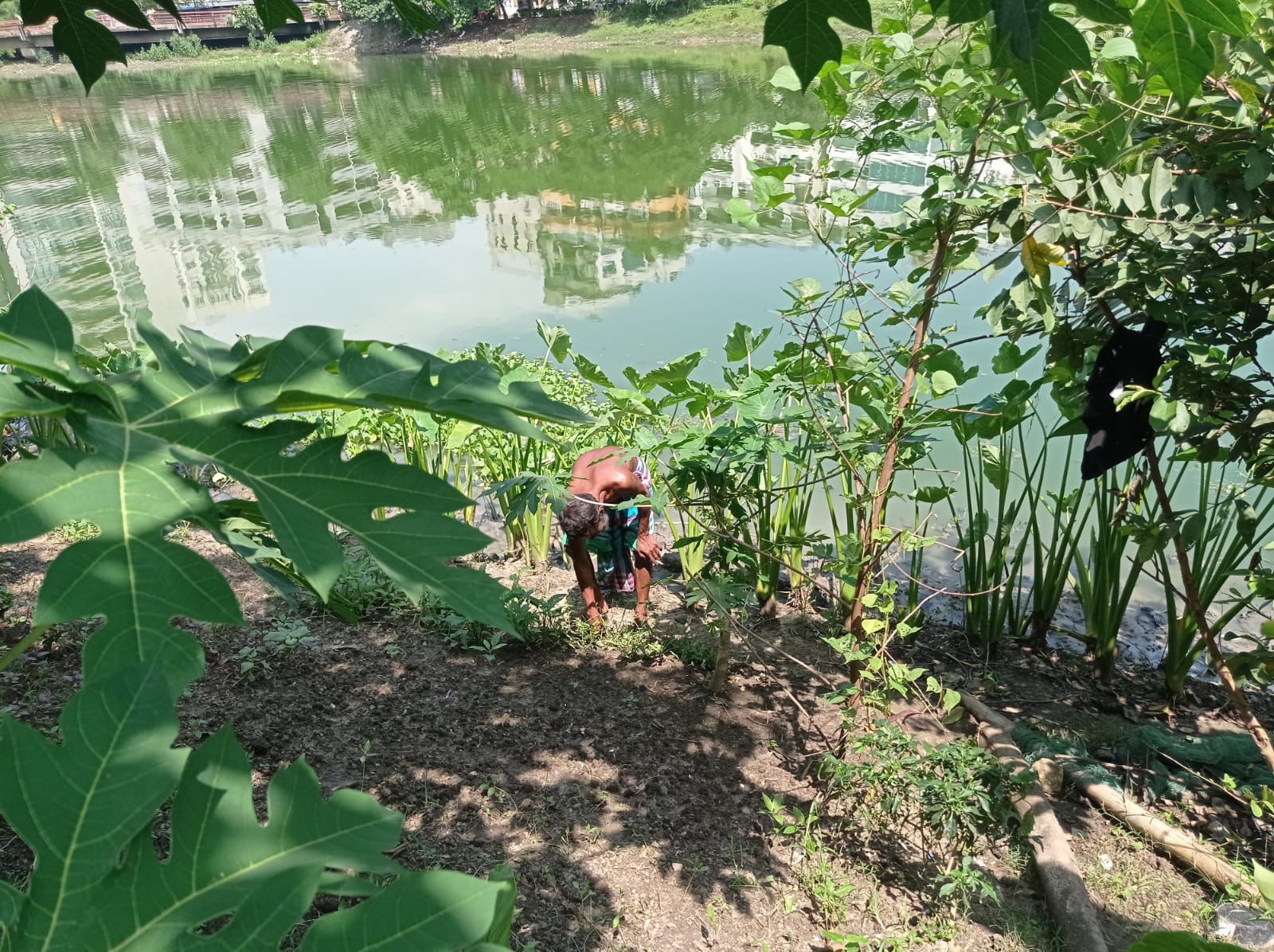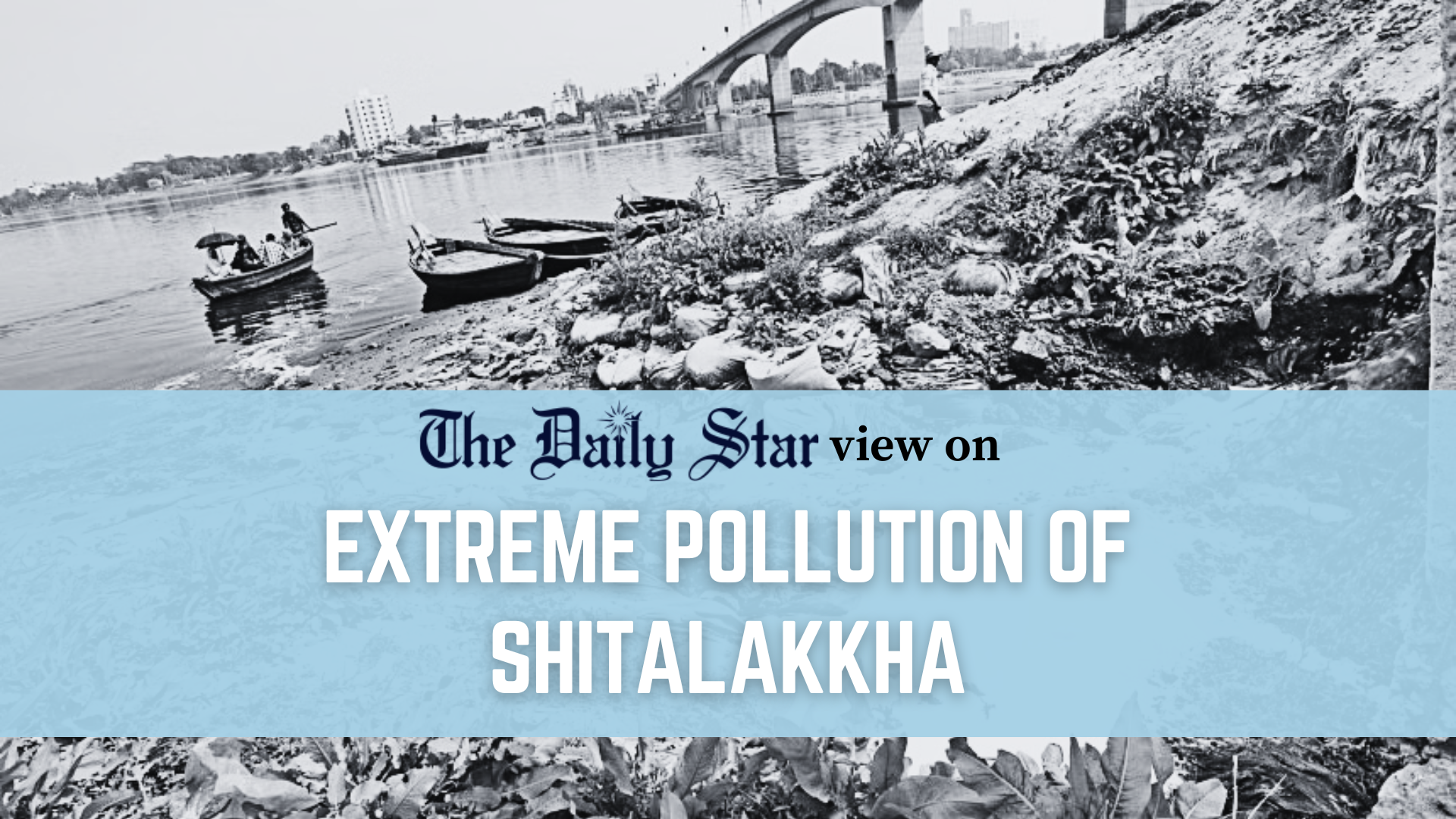Saving rivers is our duty

It is hardly surprising that pollution sources around Dhaka's rivers have nearly doubled over the last five years, given the unchecked degradation of rivers and other waterbodies in the country. Industrial units, government agencies, and private individuals have all contributed equally and untiringly to poisoning the waters of Buriganga, Turag, Shitalakhya, Balu, Karnatali, and Dhaleswari rivers—Dhaka's lifelines for centuries. Despite repeated calls to save them, successive governments have failed to take effective measures to prevent pollution or hold the polluters and encroachers accountable, emboldening them further.
As a result, according to a recent River and Delta Research Centre (RDRC) study, the number of pollution sources—industries, kitchen markets, dockyards, municipal sewerage lines, private sewerage outlets, and waste dumping stations—has surged from 608 to 1,024 in just five years. Even sluice gates and service canals are contaminating major rivers like Buriganga and Shitalakhya by channelling pollutants directly into them. All this means that the Tk 1,000 crore spent by the previous government on projects to protect Dhaka's rivers literally went down the drain. Evidently, corruption and political favouritism compromised its commitment to saving rivers.
The interim government, free from such biases and with environment activist Syeda Rizwana Hasan in its ranks, is expected to show greater dedication to protecting rivers and the environment. However, while efforts to restore 19 canals across Dhaka have recently begun, actions against major river polluters and encroachers have remained inadequate. No one expects the government to solve the deep-rooted issues involved with river protection overnight, but its measures must be more visible, especially against key offenders, to deter others.
Additionally, the National River Conservation Commission (NRCC) must be reactivated and empowered without any further delay. It is baffling that this vital agency is still operating with minimal staff months after the interim government revoked its chairman's appointment. Further delays in making it functional will only worsen pollution and allow more rivers to fall to encroachers. Ultimately, saving our rivers is a collective responsibility. While the government must act decisively, citizens, too, must refrain from polluting activities. Our rivers are essential for our survival—we all must do the best we can to protect them.



 For all latest news, follow The Daily Star's Google News channel.
For all latest news, follow The Daily Star's Google News channel. 

Comments